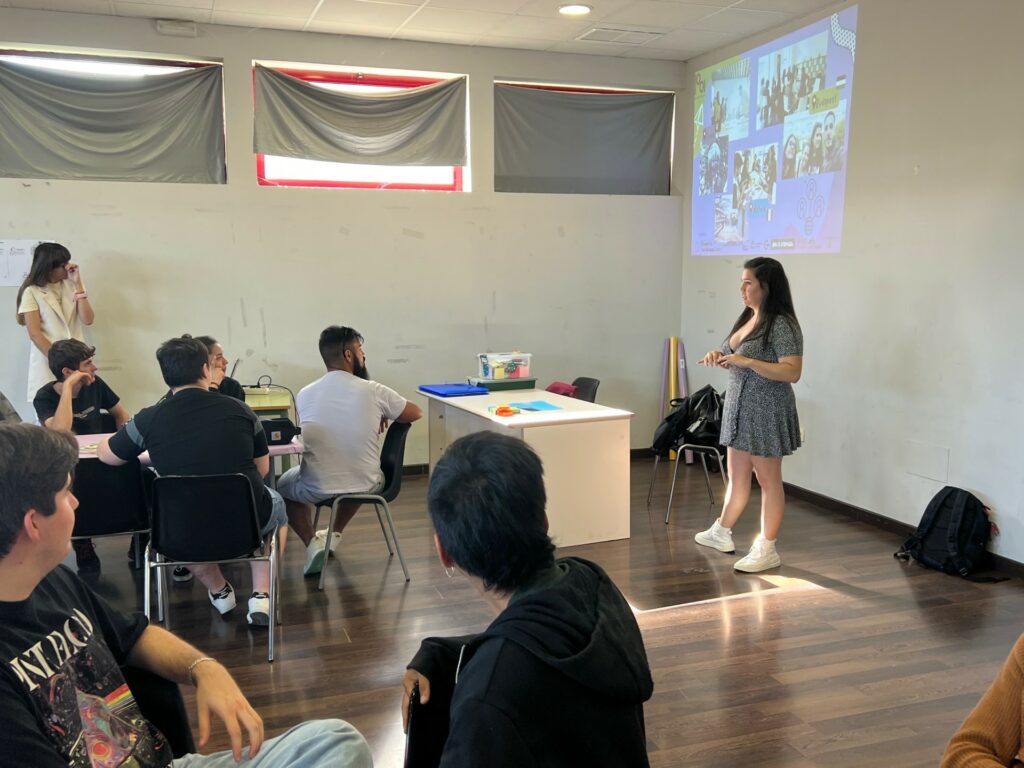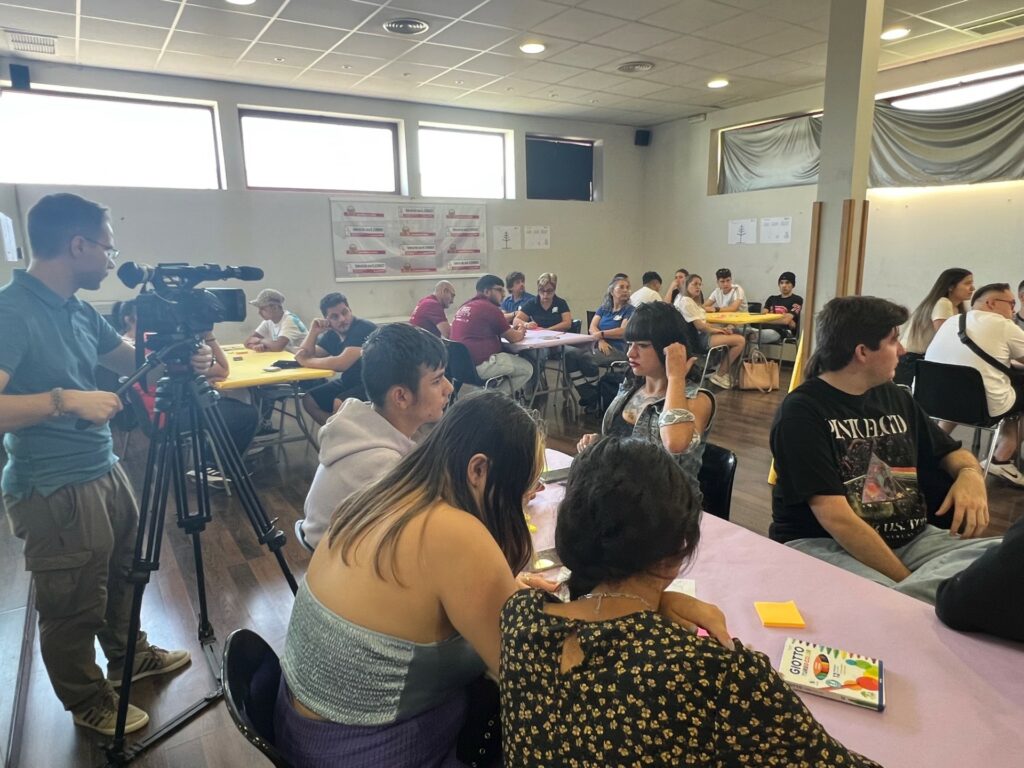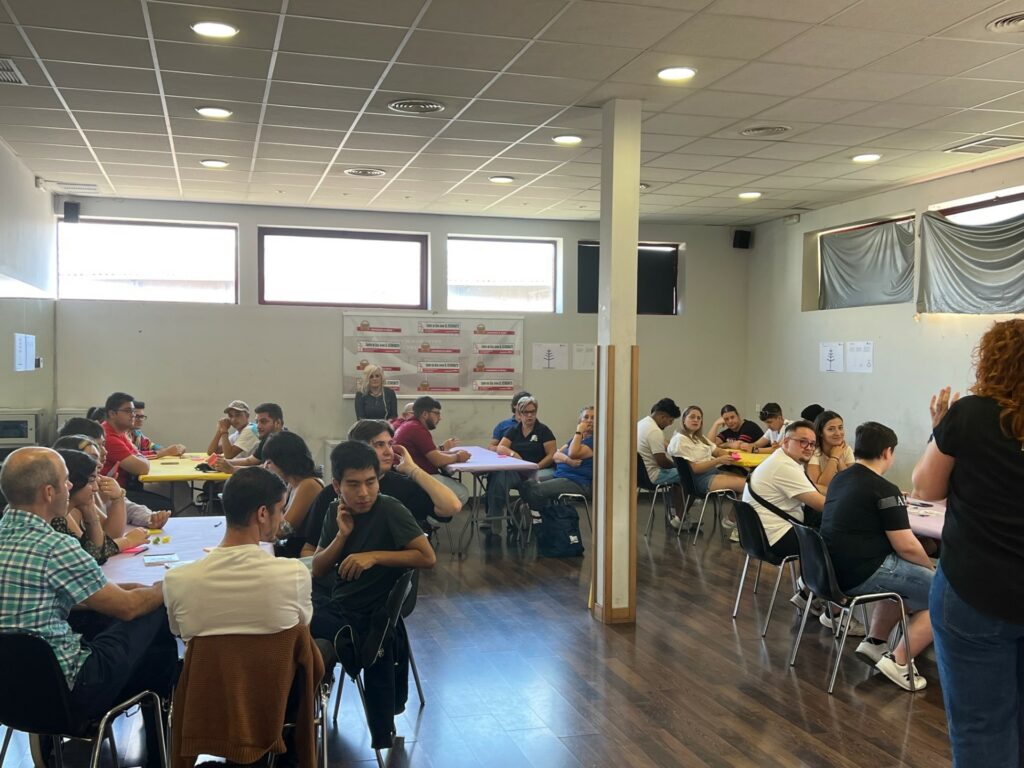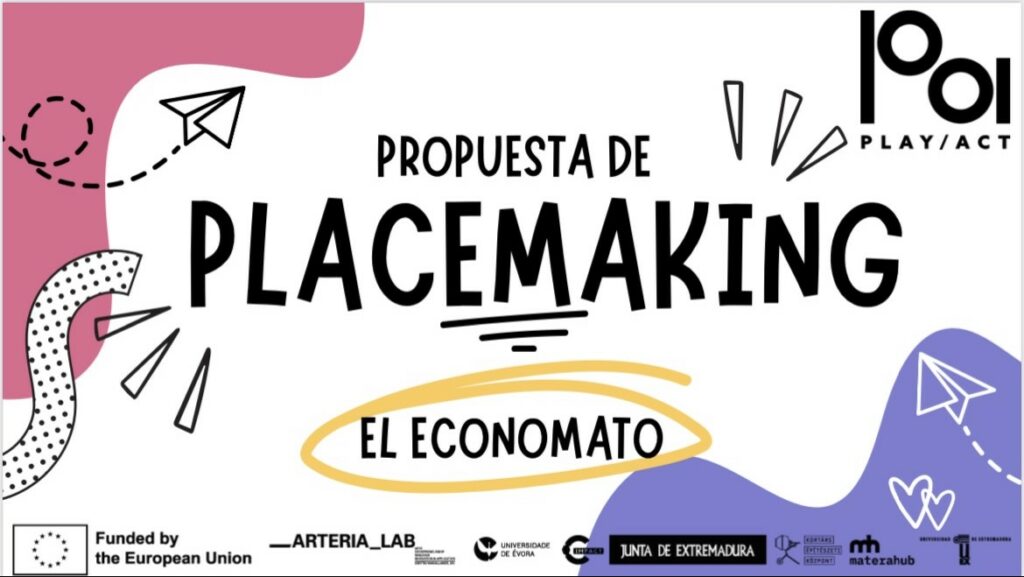Play/Act is an Erasmus+ “placemaking” project involving seven students from Extremadura. The Youth Center of Mérida, known as “El Economato,” has hosted the second multiplier event of the European project Play/Act this morning. This new community gathering aims to establish a dialogue with citizens to assist the Extremaduran partners of this project, the University and the Regional Government, in designing a leisure space in line with their proposals and needs.
Play/Act is an Erasmus+ placemaking project in which seven students from Extremadura participate. They have been responsible for guiding the session, attended by over 30 participants from various associations, local stakeholders, and students from different active employment policy programs.

During the day, the university students applied the concepts they have been working on throughout the project, through virtual and in-person training sessions in Évora, Matera, and Budapest.
The students of the Play/Act project, María José Martín and Rocío Asensio, explained to all attendees the meaning of the “placemaking” concept through the presentation of their ongoing project, which aims to reuse spaces within a city. In the case of Extremadura, they have chosen the Youth Recreation Center “El Economato” in Mérida.
During the activities carried out in this multiplier event, certain techniques were adapted to gather feedback from attendees and involved groups. The challenge presented by the students was: “How can we change the socialization habits of young people between the ages of 12 and 22?”

Play/Act Project
Play/Act is funded by the European Union’s Erasmus+ program with a budget of €275,596 and will run until March 2024. It is led by the University of Évora (Portugal) and involves the participation of the University of Extremadura and the Entrepreneurial Culture University Team of the Regional Ministry of Economy, Science, and Digital Agenda of the Regional Government of Extremadura as Spanish representatives. Other participants include Community Impact from Lisbon, Portugal; the Creative Industries Consortium of Matera Hub as representatives of Italy; and the Hungarian Contemporary Architecture Center or KÉK, based in Budapest.
The project aims to develop and test an interdisciplinary training plan in Higher Education validated by the universities of Évora and Extremadura, taking the New European Bauhaus initiative as a reference. To achieve this, a process of design, creation, and adaptation of spaces involving young people as active participants and promoters of their community will be implemented for the transformation and improvement of their environment.

Among the project’s objectives is the ability to prototype and test an interdisciplinary framework focused on the community and promote the adoption of these practices in higher education. Another identified purpose is to raise awareness among young people as active agents of citizenship, urban transformation, and social change. In this way, they will be able to seek solutions to community problems through placemaking tools, engaging in dialogue with the community and stakeholders, considering cultural, social, and environmental contexts.
For more information about this initiative, you can visit their website: https://playact.eu/

